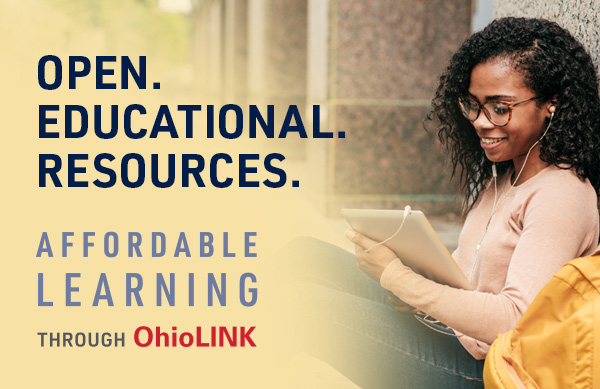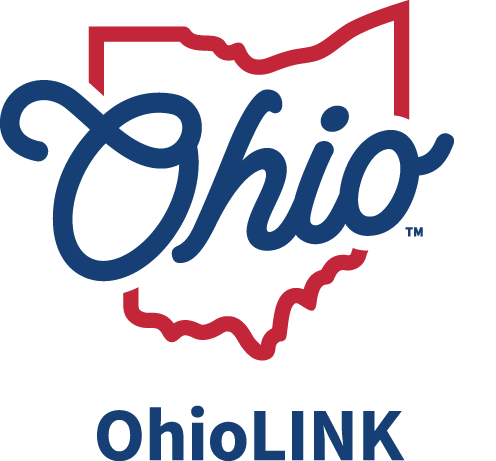As with most community colleges, Washington State College of Ohio serves a large population of disadvantaged students. In fact, 44% of its students who receive financial aid have a family annual income of $30,000 or less, thus advocating for affordability in higher education is of great importance. The initial efforts to ease the burden of textbook costs dates back to 2012 when Washington State library staff worked in partnership with the WSC Foundation to purchase textbooks that students could borrow rather than buy. That small victory inspired the staff to look for greater opportunities.
In 2015, library staff focused its efforts on increasing student awareness of borrowing textbooks through OhioLINK and some of our students were highlighted as super users in an article that appeared on OhioLINK’s website and in its 2016/17 annual report. That’s also the year the first OER was adopted by a WSC instructor. That initial trial was for two Introduction to Speech classes and ultimately reduced the textbook cost from $200 to $0 all without sacrificing quality. This served as a case study that has inspired multiple other faculty members to incorporate OERs in their curriculum. Inclusion in the Ohio Open Educational Resources Grant reinvigorated the efforts. The first two OERs for this grant, English Composition I and English Composition II, were developed by English faculty ahead of the grant schedule and launched Spring semester of 2019.
Advocacy: To ensure the success of this initiative, Washington State College of Ohio developed a team to bring awareness to OER availability. It is comprised of the Director of E-Learning, Director of Library Services, Barnes & Noble Bookstore Manager and the VP of Academic Affairs. Since the establishment of this group, they have been joined by several faculty members who have already incorporated OERs in their classrooms. Collectively, they serve as the campus OER advocates and advisors.
During Spring 2019 in-service training, the OER Advocacy Team hosted an educational seminar for all faculty members. They shared three different approaches to reducing textbook costs, including OERs, custom textbooks, and inclusive access textbooks. They described how all three alternatives can benefit the classroom experience and decrease or eliminate the cost of learning materials. This was the first formal faculty discussion about the college’s affordable learning initiatives, however, the topic has been of extensive discussion in regular departmental meetings for more than a year.
Assessment: WSC is encouraged by the initial success of this initiative with savings well in excess of $250,000. As of Spring 2019, WSC has adopted 28 OERs in various courses. The OER Advocacy Team is currently developing resources for Political Science 1020 and 1030, Economics 2120 and 2130, Art History, Psychology, and Sociology.
Sampling of Initial Savings:
| Speech 1510 (reduced costs from $200 to $0) | English 1510/1520 (reduced textbook cost from $90 to $0) |
| 2015 - $35,600 | 2018 – $43,650 |
| 2016 - $29,600 | 2019 --$27,000 |
| 2017 - $35,600 | TOTAL STUDENT SAVINGS TO DATE: $70,650 |
| 2018 - $44,400 | |
| TOTAL STUDENT SAVINGS TO DATE: $145,200 | Biology 2310/2320 (reduced textbook cost from $300 to $171) |
| 2018-- $24,639 | |
| Business Mgt 1660 (reduced textbook cost from $300 to $160) | 2019-- $30,315 |
| 2018--$2,240 | TOTAL STUDENT SAVINGS TO DATE: $54,954 |
| 2019--$7,840 | |
| TOTAL STUDENT SAVINGS TO DATE: $10,080 |

